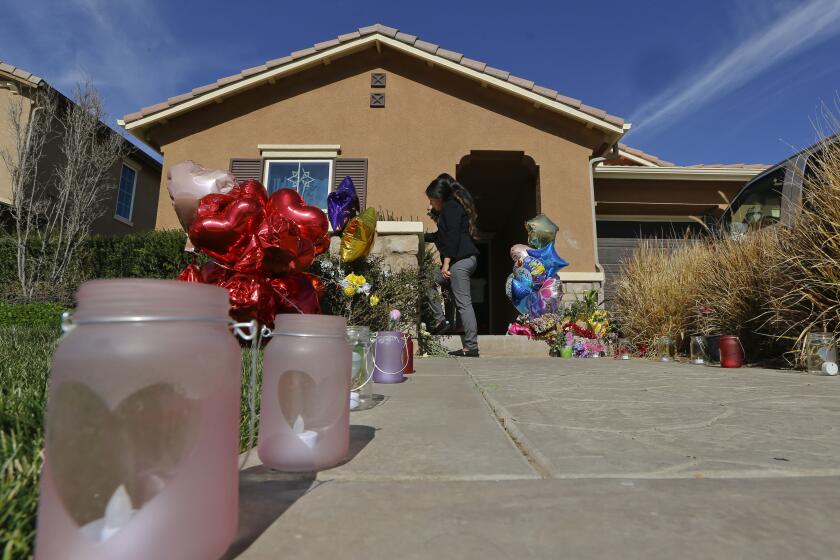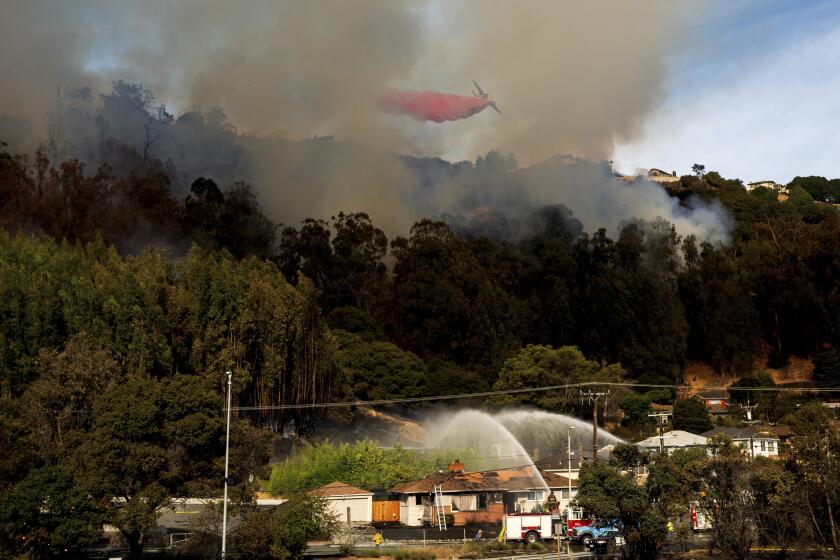L. B. Council Puts Off Decision on Adding Campaign Financial Reform to Ballot
Supporters of a plan to limit how much money can be spent in an election argued this week that limits are necessary to protect democracy and “the American dream that every child can grow up to be President . . . or mayor.”
Opponents said the plan, which includes giving candidates matching public funds, has numerous problems and is too expensive.
After two hours of testimony Tuesday from individuals and representatives of organizations, the City Council made no decision on the move to place a campaign finance reform proposal on the November ballot. Instead, the council set another hearing for June 21 at 7 p.m.
Councilman Tom Clark, the council’s main proponent of campaign finance reform, expressed optimism after the meeting that the plan will find its way to the November ballot. He noted that most council members recently said they would be willing to let the voters decide.
Clark said there is plenty of time to meet the Aug. 9 deadline to place the issue on the ballot. And he said he does not expect council members to change their minds on the proposal after the mayoral election next month. Clark noted that only two of the council’s nine members are running for office.
Most supporters are pointing to the mayoral race, the most expensive in the city’s history, as an example of why campaign spending should be limited. Neither longtime council member Ernie Kell nor Jan Hall--the two candidates for mayor--has voted for a campaign finance reform proposal. Both now say they would support a ballot measure.
On Tuesday, representatives of liberal and senior citizens groups were among those expressing support for the plan to give matching public funds to candidates who voluntarily limit the money they receive and spend during elections.
“It’s a blight on our democracy that money decides elections,” Margaret Blair of the local Gray Panthers chapter told the council.
Fred Kugler of the Long Beach Area Citizens Involved called the estimated $190,000 annual cost of the plan “a small price to pay for the preservation of our local democracy.”
Penny Boone of the local League of Women Voters chapter said that now “the American dream that every child can grow up to be President . . . or mayor” is not true because of the influence of money in campaigns.
Blair, Kugler and Boone were joined by several individuals and representatives of the Council of Seniors of Greater Long Beach, the local chapter of Common Cause and the local Lambda Democratic Club.
Opposing the plan were several individuals and representatives from the Long Beach Board of Realtors and the Apartment Assn. of California Cities.
Greg Berkemer, a spokesman for the Board of Realtors, said political action committees represent the interest of many and should therefore be allowed give bigger contributions than individuals. (Under the plan, political action committees, or any organization, are allowed the same contribution as an individual.)
Numerous Objections
Elaine Hutchison, a board member and past president of the apartment association, raised numerous objections. She said the plan amounts to “an election tax of $1 million” during a four-year period, and it is discriminatory because it does not include the elected offices of city prosecutor, city attorney or city auditor.
“The present system may not be perfect, but it’s working,” Hutchison said. Hutchison, who is a past president of the Chamber of Commerce, said the chamber has opposed campaign finance reform plans in the past.
Robert M. Stern, co-director of the California Commission on Campaign Financing, said the Long Beach plan overall is well done, but could use some fine-tuning. Among other things, Stern suggested that the council add “a serious candidate provision” and raise the qualification threshold that allows a candidate to receive matching public funds.
The plan now before the council:
Limits contributions for council candidates to $750 per individual or political committee and $1,500 for mayoral candidates.
Limits spending to an amount equal to $1 per resident in the district (previously estimated at $42,000 and now updated to about $46,000) in council races, and $1 per resident in the city (or about $172,000) in the mayoral race.
Provides matching public money from the city’s general fund--$1 for each $1 received--for up to half of the total amount received, (previously estimated at $21,000 and now updated to about $23,000) in council races and $86,000 in the mayoral race.
Qualifies council candidates for the matching public money if they have collected 50 contributions of $10 or more. Qualifies mayoral candidates for the public dollars if they have collected 200 contributions of $10 or more.
The program would be voluntary and only those who pledge to abide by its rules would receive matching public funds. Supporters expect most candidates to abide by the reform, however, because those who do not could face greater public scrutiny and pressure to comply.
More to Read
Sign up for Essential California
The most important California stories and recommendations in your inbox every morning.
You may occasionally receive promotional content from the Los Angeles Times.










